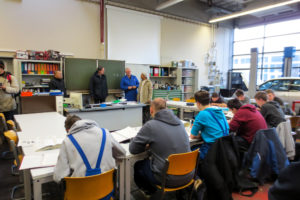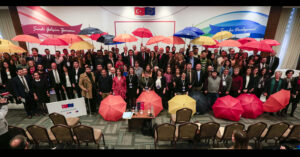
Technical Assistance for Implementation of Civil Society Dialogue and Civil Society Support Programmes (TR2015/DG/01/A5-01/001)
The overall aim of the project is to increase bilateral exchanges and cooperation between CSOs in Turkey and the EU at local, regional and national levels, to promote awareness raising initiatives on importance and benefits of membership of Turkey to the EU within Turkey and EU and on

Skills Development and Innovation Support Project
The labour market demands quick responses to changes in the market and the demographic situation. Within this scope, the assignment aimed to provide technical assistance to the Government of Macedonia and the Ministry of Education and Science (MOES) to reform the 4-year Secondary Technical and Vocational Education and

Strengthening of an Integrated Strategic Approach to Increase the Efficiency and Productivity of IPA Funds during the Third Period (2021-2027)
This project’s main objective is to further increase and consolidate administrative capacity of the Turkish administration for more effective and efficient management and absorption of IPA funds, in addition to strengthen the capacity of NIPAC and other relevant institutions in the area of strategic planning and programming, proper

Technical Assistance for Promoting Women’s Employment in Turkey
The employability of women has been a challenging issue in Turkey for decades. The labour market of women needs to be improved in terms of the existing capacity to design, develop and implement policies to attract and retain more people in employment, particularly by increasing the participation of

Technical Assistance to Implementation of Civil Society Support Programme
The overall objective of the project is to support the development of civil society through more active democratic participation in policy and decision making processes and by promoting a culture of fundamental rights and dialogue.

Technical Assistance for Promoting Registered Employment
Unregistered employment remains one of the critical concerns and significant challenges of the Turkish labour market. Even though recent years have seen a downward trend in unregistered employment, a substantial portion of Turkey’s workforce is still employed without being registered with the social security system. In this regard,

